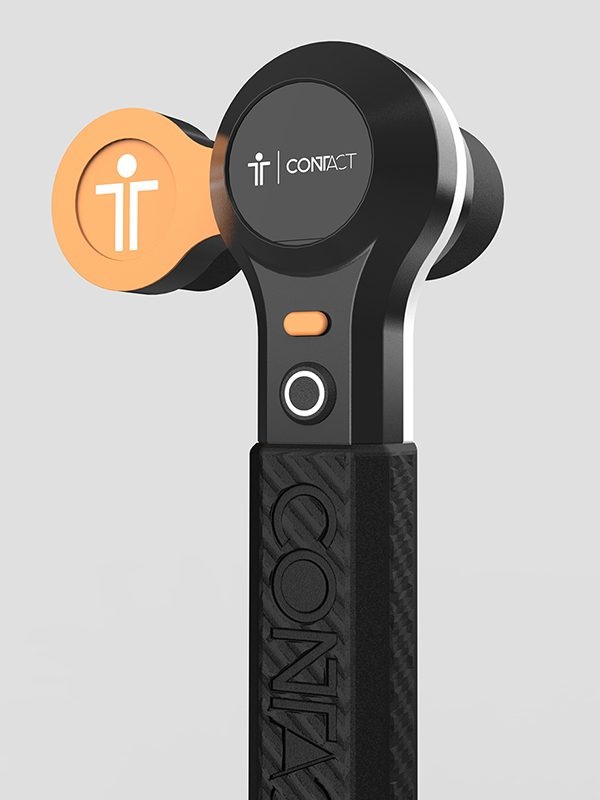Joel Poulter, a recent Product Design graduate, hopes ‘CONTACT’ will provide a non-subjective, rapid assessment of concussions so decisions can be made on the field to prioritise player safety.
CONTACT allows for a fast evaluation of concussions by detecting abnormal changes in a person's pupils.
It does this by shining a light into the user’s eyes and measuring factors such as pupil size, how rapidly they constrict, and the speed at which their eyes respond to the light stimulus.
The results are compared to the player's usual pupil readings – captured prior to playing – to determine if they have sustained a concussion.
The inspiration behind CONTACT stems from Joel’s extensive experience as a rugby player spanning over 15 years, which has seen him witness the profound effects of concussions on athletes.
“Detecting concussions early is incredibly important as returning to play prematurely after a concussion risks ‘second-impact syndrome’, which is often fatal”, explains Joel.
“Multiple sports concussions are also linked to long-term health problems, including chronic traumatic encephalopathy, or CTE, which can lead to dementia in later life.
“I’ve had multiple firsthand experiences with concussion, and I have friends that have suffered from the consequences of concussions, causing them to take a step back from playing entirely.”

Joel says the issue with current concussion tests on the field is that they are usually subjective, often involving a ‘follow my finger’ test, making it hard for players and assessors to determine if a concussion has been sustained.
“I’m very aware of how tough it can be to spot a concussion from a personal and external perspective”, said Joel.
“I wanted to develop a non-subjective test that gives a rapid assessment and can be used at all sporting levels, particularly at amateur games where there is often little-to-no medical support and therefore concussions are likely to be missed.”
Joel has created a functioning CONTACT prototype that provokes a pupil response in both eyes, which is captured by an infrared camera in the device.
Joel has trialled the tech with nine participants and, using analytical software, was able to determine their pupil maximum and minimum size, constriction speed, and pupil response time to the light stimulus in a 10-second test.
He now hopes to integrate the software into CONTACT, enabling the handheld device to assess eye responses and deliver a concussion assessment in 10 seconds.
Joel would also like to create an accompanying app that presents data from the test and offers valuable medical guidance.
Of the ultimate goal for his design, Joel said: “I want CONTACT to become a tool used by every club, school, and university so we can tackle concussion in all contact sports.
“If concussions can be accurately detected, recovery can be prioritised, and we can ensure players only return to the field once fully recovered. This could prevent serious health issues and players having to walk away from the sport they love.”
CONTACT was showcased as part of the School of Design and Creative Arts Degree Show and Foundation Exhibition Student Showcase 2023.
Further information on the design can be found on the exhibition’s dedicated webpage.
